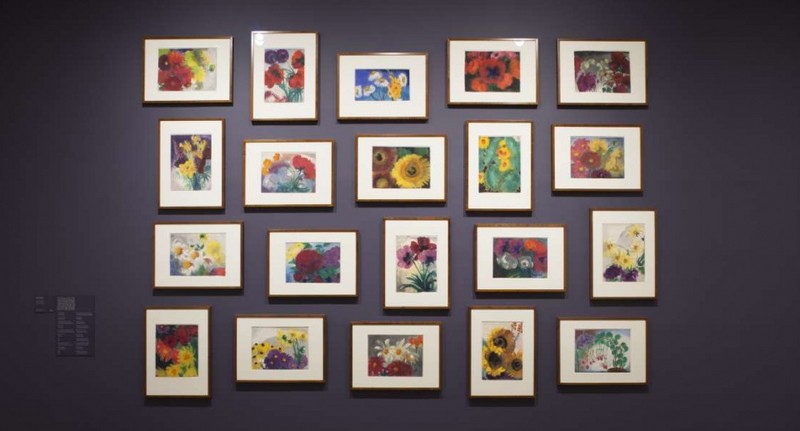Emil Nolde
04 Jul - 19 Oct 2014
EMIL NOLDE
Retrospective
4 July - 19 October 2014
The major exhibition of summer 2014 at Louisiana was Emil Nolde. Nolde (1867-1956) is a classic – whether for his almost spontaneously combustible watercolors of poppies and other colorful natural phenomena or his distinctive expressionist love of the primitive, the simple.
But Nolde is not just a powerful colorist. His work is large and complex, and with the exhibition at Louisiana, which was assembled together with the Städel Museum in Frankfurt, visitors could experience the most comprehensive retrospective presentation of the painter in several decades – and thus also new dimensions of his work.
Nolde is a German artist, but his proximity to Denmark, both biographically and geographically, also makes him part of Danish art history. His influence has been great; he brought painting over the edge of the presentable into a violent, dramatic space where both religious passion and bodily ecstasy thrive and where his birthplace and the exotic in remote regions live side by side.
The exhibition was divided into 11 thematic chapters following a loose chronology, starting with Nolde’s EARLY WORKS and ending with UNPAINTED PICTURES.
The exhibition was organized in collaboration with the Städel Museum in Frankfurt and the Nolde Foundation in Seebüll.
Retrospective
4 July - 19 October 2014
The major exhibition of summer 2014 at Louisiana was Emil Nolde. Nolde (1867-1956) is a classic – whether for his almost spontaneously combustible watercolors of poppies and other colorful natural phenomena or his distinctive expressionist love of the primitive, the simple.
But Nolde is not just a powerful colorist. His work is large and complex, and with the exhibition at Louisiana, which was assembled together with the Städel Museum in Frankfurt, visitors could experience the most comprehensive retrospective presentation of the painter in several decades – and thus also new dimensions of his work.
Nolde is a German artist, but his proximity to Denmark, both biographically and geographically, also makes him part of Danish art history. His influence has been great; he brought painting over the edge of the presentable into a violent, dramatic space where both religious passion and bodily ecstasy thrive and where his birthplace and the exotic in remote regions live side by side.
The exhibition was divided into 11 thematic chapters following a loose chronology, starting with Nolde’s EARLY WORKS and ending with UNPAINTED PICTURES.
The exhibition was organized in collaboration with the Städel Museum in Frankfurt and the Nolde Foundation in Seebüll.

